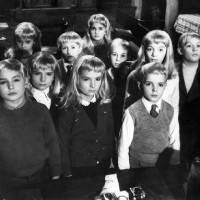January 9, 2019
Third of workers feel so undervalued by their managers they are planning to leave

Poor relationships with their managers and a lack of development opportunities are leading to more than a third of workers feeling dissatisfied in their current jobs, claims new research from The Institute of Leadership & Management. Around 1,400 members of The Institute of Leadership & Management completed a survey, which asked about their plans and aspirations for the New Year. The survey revealed that 34 percent are likely to change their job this year. Three quarters (74 percent) admitted the New Year leaves them feeling like they can achieve more in their careers, and because January also inspires self-reflection and a desire for change. (more…)









 The two most important barriers to working for those in their 50s and early to mid-60s are health and caring; according to the latest analysis from the ONS.
The two most important barriers to working for those in their 50s and early to mid-60s are health and caring; according to the latest analysis from the ONS. 


 A new survey into happiness at work suggests it is viewed differently according to age. Baby boomers: aspire to have job security and think careers are defined by employers. Gen X: aspire to have a work-life balance and although are loyal to a profession will not necessarily stick with the same employer. Millennials or Gen Y aspire to have freedom and flexibility and are digital entrepreneurs while Gen Z aspire to have security and stability. The report by Instant Offices’ considered what is important to each age group, and how employers approach the age gap. It found that eight in 10 millennials look for a manager to act as a mentor or coach; Baby boomers want a boss to be ethical, fair and consistent, while 61 percent of Generation X, and 55 percent of millennials, think team consensus is important.
A new survey into happiness at work suggests it is viewed differently according to age. Baby boomers: aspire to have job security and think careers are defined by employers. Gen X: aspire to have a work-life balance and although are loyal to a profession will not necessarily stick with the same employer. Millennials or Gen Y aspire to have freedom and flexibility and are digital entrepreneurs while Gen Z aspire to have security and stability. The report by Instant Offices’ considered what is important to each age group, and how employers approach the age gap. It found that eight in 10 millennials look for a manager to act as a mentor or coach; Baby boomers want a boss to be ethical, fair and consistent, while 61 percent of Generation X, and 55 percent of millennials, think team consensus is important. 
 All the chatter around the growth of flexible working might suggest it has now become the norm, but an academic paper refutes that view by revealing a third of all UK workers believe those who work flexibly create more work for others. A similar proportion believe their career will suffer if they use flexible working arrangements. This is the main finding from Dr Heejung Chung from the University of Kent who set out to analyse data from the 2011 Work-Life Balance Survey conducted by the government. Specifically, she wanted to examine whether stigma against flexible workers exists, who is most likely to hold such beliefs and who is most likely to suffer from it. The research also found that the majority of respondents that held negative views against flexible workers were male, while women and especially mothers were the ones who were most likely to suffer from such stereotypes.
All the chatter around the growth of flexible working might suggest it has now become the norm, but an academic paper refutes that view by revealing a third of all UK workers believe those who work flexibly create more work for others. A similar proportion believe their career will suffer if they use flexible working arrangements. This is the main finding from Dr Heejung Chung from the University of Kent who set out to analyse data from the 2011 Work-Life Balance Survey conducted by the government. Specifically, she wanted to examine whether stigma against flexible workers exists, who is most likely to hold such beliefs and who is most likely to suffer from it. The research also found that the majority of respondents that held negative views against flexible workers were male, while women and especially mothers were the ones who were most likely to suffer from such stereotypes.




















January 3, 2019
Anti-team legislation can make us slaves to individual rights
by Helen Jamieson • Comment, Flexible working, Workplace
Society is becoming more selfish. At least that’s what the most commonly held view on the issue suggests, and it’s only set to get worse. Whether or not you believe the headlines, my 20 plus years’ experience as an HR consultant has led me to believe the hype. Increasingly many (I stress, not all) employees no longer see themselves as part of a team, but are increasingly ‘lone wolves’ single mindedly pursuing their needs and wants above those of the team. Each decision they make is with ‘I’ first and foremost, with ‘we’ maybe just a passing thought. It could be argued this was inevitable. How do you create a culture of team engagement, and group morale when for decades UK workplace legislation has focused almost exclusively on Individual Rights, rather than the ‘rights’ of the group? I’d argue it is simply not possible to develop successful teams where each individual has numerous legal rights but no corresponding responsibilities. My wish for 2019 would be for the government to set out a ‘responsibility’ alongside every ‘right’ it confers.
(more…)